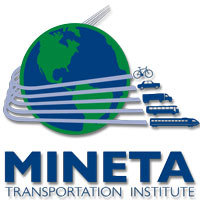Which costs more for drivers - a fuel tax or a road user charge?
 |
 |
Dr. Ferrell said, "The current per-gallon fuel tax is no longer keeping up with highway funding needs because vehicles can travel much farther on a single gallon of fuel. But it has been difficult to convince voters to increase that tax. If revenue were based on a fee per mile traveled, it could be more realistic. But would it be a disadvantage to particular income groups or to those who live in rural areas? That was the basis of our study."
The report addresses four primary results from the research:
- Daily household fuel consumption and vehicle miles traveled (VMT) both appear to increase with increasing household income.
- Urban and rural households show roughly the same amount of fuel consumption and VMT.
- Although the researchers found some slight differences in estimated costs over different income groups and rural vs. urban households, they found no statistically significant difference among income groups between a vehicle fuel tax and a road user charge.
- These results are based on sample data and are therefore subject to sampling errors in the data. Fuel efficiency for vehicles of the same make, model, model year, and engine type will differ because of several differences, including maintenance, driving cycles, vehicle loads, and fuel type (e.g., regular vs. premium).
"It is important to note that other aspects to these alternatives should be examined to provide complete information for decision makers," cautioned Dr. Ferrell. "For example, a fuel tax is an across-the-board tax that applies equally to all vehicles, regardless of size or weight. On the other hand, a road user charge could be based on vehicle class, which would more fairly assess different vehicle classes for the actual wear and tear they impose on the road system."
The analysis was based on two data sources. Those are the California Household Travel Survey from 2010-2011, which covered a statewide sample of households; and the Environmental Protection Agency database on vehicle fuel efficiency.
The report includes eight tables illustrating the findings. It is available for free download from http://transweb.sjsu.edu/project/1426.html
Tweet this:† Which costs more per household? A fuel tax or a road use fee? MTI says there's little difference. http://ow.ly/UdgLX
ABOUT THE AUTHORS
Christopher E. Ferrell, PhD, began
his planning career in 1995 with the Metropolitan Transportation Commission
(MTC). Since 2000, he has been a transportation consultant, and in 2010 he
co-founded CFA Consultants, a transportation planning and research firm.
Dr. Ferrell completed his doctoral studies in city and regional planning at
the University of California, Berkeley in 2005.
He has also taught several graduate planning classes in the San Josť State
University Urban Planning Department and in the University of California, Berkeley's City and
Regional Planning Department.
David Reinke began his planning career in 1973 with the London Borough of Camden, where he worked on a livable neighborhoods plan, priority bus lanes, and development of a traffic-monitoring program. Since then he has worked for Crain & Associates, BART, Dowling Associates, and Kittelson & Associates. He earned his MS in civil engineering from the University of California, Berkeley; a Master of Regional Planning from Cornell University; and a BS in electrical engineering from MIT.
ABOUT THE MINETA TRANSPORTATION INSTITUTE
The Mineta
Transportation Institute (MTI) conducts research, education, and
information transfer programs regarding surface transportation policy and
management issues, especially related to transit. Congress established MTI
in 1991 as part of the Intermodal Surface Transportation Efficiency Act.
MTI won national re-designation competitions in 2002, 2006 and 2012. The
Institute is funded through the US Department of Transportation, the US
Department of Homeland Security, the California Department of
Transportation, and public and private grants. The internationally
respected members of the MTI Board of Trustees represent all major surface
transportation modes. MTI, the lead institute for the nine-university
Mineta National Transit Research Consortium, is affiliated with San Jose (CA) State University's College of
Business. Visit transweb.sjsu.edu


